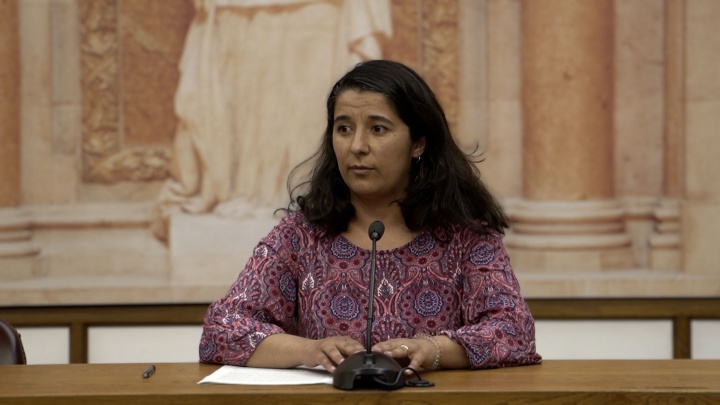The PCP reaffirms its stand of upholding the principles of the United Nations Charter and
international law and condemning a whole path of interference, violence and confrontation, the 2014 coup d'état, promoted by the US in Ukraine, which established a xenophobic and warmongering power, the recent Russian military intervention in Ukraine and the heightening of the warmongering escalation by the US, NATO and the European Union.
In view of the serious situation in Ukraine and Eastern Europe, which worryingly affects the entire world situation, the PCP reaffirms the need to make every effort towards peace and against the escalation of war and that it must be this aim that should guide the role of Portugal and its institutions. At the same time, the PCP reaffirms that it has nothing to do with the Russian government and its president. The PCP's class option is opposite to that of the political forces that govern capitalist Russia and its economic groups.
In this context, the invitation to Volodymir Zelensky to address the Plenary of the Assembly of the Republic, outside the established institutional criteria, constitutes an act of instrumentalization of a sovereign body, not guided towards contributing to a path of dialogue to promote a ceasefire and a negotiated solution to the conflict, but to encourage the escalation of the war and the ongoing political, economic and military confrontation that holds huge risks for the world.
Thus, the PCP will not participate in a session of the Assembly of the Republic designed to stage the instigation of the escalation of war, contrary to the construction of the path to peace, with the participation of someone, like Volodymir Zelensky, who personifies a xenophobic and warmongering power, surrounded and supported by fascist and neo-Nazi forces, including paramilitary ones, of which the so-called Azov Battalion is an example, which shared the podium with Zelensky in the recent session in the Greek Parliament.
A power that for eight years has been attacking and massacring the Ukrainian population itself in the Donbass region and persecuting and eliminating those who oppose it, as was seen in the massacre of May 2, 2014, at the House of Trade Unions, in Odessa, in which some 42 people were murdered, many of them burned alive, by neo-Nazi forces associated with the Ukrainian power.
A power that, following the 2014 coup, discriminates against its citizens on the basis of their culture and language, attacks the right of opinion, promotes political persecution – a recent example of which is the arrest of communist youth leaders –, has begun a process of outlawing the Communist Party of Ukraine and represses other democratic and anti-fascist forces, as has now happened with the suspension of the activity of 11 political forces, including parties with parliamentary representation, for having a different position. A power that at the same time extols the Nazi SS collaborationists in World War II and whitewashes their atrocities committed against the populations of Ukraine and Poland.
The PCP reaffirms that initiatives and measures are urgently needed to pave the way for negotiation and peace, and not to increase the confrontation, heighten the war, hinder a ceasefire and a negotiated solution that is necessary.
The policy of instigating confrontation will only lead to the worsening of the conflict, the loss of more human lives, greater suffering, with dramatic consequences for the peoples of Ukraine and Russia, for the peoples of Europe and for world peace.
